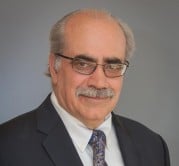Why are women where they are in credit unions?

At CUNA’s GAC, we put on our pink ties and met for the 2015 Global Women Leadership Network breakfast. We remembered what set us upon this journey. After years of product development and market outreach, we had seen women’s Network participation increase dramatically in many countries. But, we had not seen a parallel increase in women in senior management or senior board positions. The Network began because many women in the credit union system overseas asked for a peer network.
Last year, we gauged women’s participation in leadership positions in cajas [credit unions] in Mexico. They reported that women mostly participate in the leadership of smaller and sometimes mid-sized credit unions. Women participate less in larger credit unions. Results show that women’s participation is broadest in administrative and middle management positions, excluding the CEO and board chair. Sounds similar to what we see in other countries.
While larger cajas have structured working hours—allowing for better working options and more mobility for women caring for family members—women managers tend to work in smaller cajas. Larger cajas have higher education and technical expertise requirements for managers and board members. These are less of a requirement for smaller cajas because they have to fulfill fewer regulatory requirements. This brings about greater opportunities in smaller cajas for those who lack higher formal education, which is the case for many women in Mexican rural areas. If training is provided offsite and requires travel, it is often more difficult for women to attend and take leave from family responsibilities.
All interviewees, both men and women alike, strongly argue that working conditions in their cajas are equal for all, with no distinction according to gender and no limitations to participate at any level. Interviewees considered that participation is open to all; it depends on each person to decide whether to pursue opportunities.
However, work limitations arise from the family situation that affect women. These often derive from cultural expectations for women to bear the brunt of family responsibilities. The kinds of obstacles listed above, unstructured hours, long meetings, technical requirements or training necessities are not gender specific. Yet these may affect women’s participation more heavily than men, especially for women who are mothers and family care providers without a reliable and convenient support mechanism. Jobs or duties that require frequent travel, frequent and time-consuming board meetings and offsite training require absence from home and usually prove to be more problematic for women than men.
Individuals may choose not to participate in executive level or board leadership due to cultural conditioning, lack of interest, lack of pay for board positions, family priorities or dislike of politics. This can drive how people choose to manage their time between competing personal, family, community and work responsibilities. Not all women want, or can, take on the burden of caja leadership responsibility, as this may result in additional stress, time commitments or other trade-offs.
What can we do about it? Our researchers in Mexico suggest a couple strategies for the Global Women’s Leadership Network to follow up on:
- Leadership training programs to identify female candidates for leadership and support their participation in targeted leadership and technical training programs.
- Accessory support measures to expand connectivity to allow women to participate virtually in meetings and training, as well as provide or facilitate access to support such as childcare and transportation.
Why do we care? We share the ideal—which all interviewees insisted on—of providing men and women with equal opportunity in credit unions. After all, we all have spouses, partners, daughters and friends who we want to enjoy that ideal.

